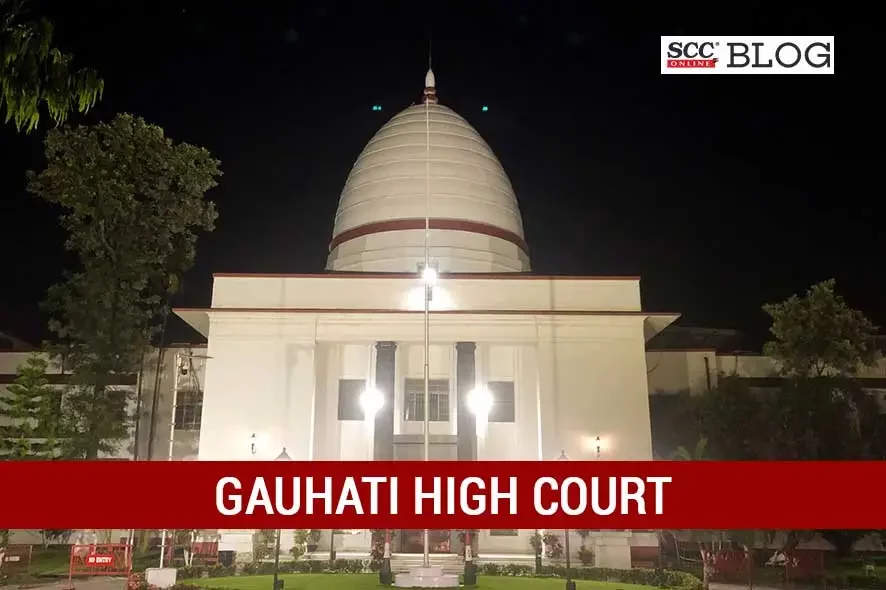Gauhati High Court: In the instant petition filed, wherein the petitioner challenged the decision of the Foreigner’s Tribunal declaring her to be a foreigner illegally entering India on or after 25-03-1971; the Division Bench of Manash Rajan Pathak and Mithali Thakuria*, JJ., concurred with the judgement passed by the Foreigners Tribunal, Hojai, where the Tribunal found the petitioner to be a foreigner. The Court held that , the petitioner failed to discharge her burden of proof, under Section 9 of the Foreigners Act, 1946, as there was no legitimate evidence to establish the claims of her being an Indian citizen. Thus, the Court dismissed the petition and further held there was no requirement of any interference with the order passed by the Foreigner’s tribunal.
Background:
A case against the petitioner came up before the Foreigners Tribunal. The Tribunal held the petitioner to be a foreigner under Foreigner’s Act , who had illegally entered into the territory of India (Assam). Dissatisfied by the said judgement, the petitioner filed a writ petition seeking to set aside the impugned judgement passed by the Foreigner’s Tribunal.
The petitioner contended that she is an Indian citizen by birth and a permanent resident of Village Bherbari, Nagaon, Assam. The petitioner in support of her case, exhibited certified copies of Voter Lists of the years 1966 and 1971, wherein, the name of her grandfather and father are recorded. She also produced subsequent Voter Lists where her own name appeared along with her husband. She further produced the certificate of residency issued by the Gaonburah (Village headman) from her paternal village as a link document with the name of her father reflected on it. The petitioner further added that the Tribunal without considering her documents and evidence on record properly, passed the impugned judgment arbitrarily.
Per Contra, the respondent submitted that the petitioner relied on only one link document, which was the certificate of Gaonburah, to establish the linkage with her projected father and grandfather and that she failed to examine the issuing authority or the Gaonburah as the witness in support of her plea or to prove the contents of the certificate. It is also not clear from the certificate of the Gaonburah as to whether he know the petitioner from her childhood or since her birth. It seemed that he issued the certificate only on the basis of information provided to him and he has no personal knowledge in regard to the birth of the petitioner. The respondent further added that simply exhibiting documents is not enough, as one has to prove the contents of the documents as well. It was further submitted that Gaonburah can issue certificate only on the basis of record maintained in his office and had no knowledge about the personal life.
The respondent relied on the case Sarbananda Sonowal v. Union of India, (2005) 5 SCC 665, which held that burden of proving the facts lies upon the person if their citizenship is disputed by the State authorities.
They further added that the petitioner failed to produce any document to establish herself as an Indian Citizen and discharge her burden under Section 9 of the Foreigners Act, 1946.
Courts Assessment:
The Court opined that there are no supporting documents to attest the claims of the petitioner. She also failed to prove the contents of the said certificates or that she is the daughter of her projected father. The Court further observed that the petitioner filed a certificate issued by the Panchayat, along with another identity certificate to prove her linkage with her father and husband respectively, but those weren’t exhibited before the concerned Foreigners Tribunal.
The Court further relied on the case Rupajan Begum v. Union of India, (2018) 1 SCC 579, wherein it was held, “the certificate issued by the Gram Panchayat Secretary , by no means, is proof of citizenship. Such proof will come only if the link between the claimant and the legacy person (who has to be a citizen) is established.” The Court opined that the petitioner has failed to establish herself as daughter, granddaughter of the projected father and grandfather and also could not prove the content in the certificate of Gaonburah as required under the Evidence Act, 1872 and thus, she failed to discharge her burden as required under Section 9 of the Foreigners Act, 1946.
Finding that the petitioner could not produce any other document to establish herself as an Indian citizen, the Court held that the impugned order of the Tribunal was rendered after due appreciation of the entire facts, evidence, and documents brought on record. There was no infirmity in the findings and opinion of Tribunal and thus, the Court refrained from reviewing the impugned judgement of the Tribunal, as no perversity or illegality was found.
[Naima Begum v. Union of India, 2023 SCC OnLine Gau 4210, decided on 20-12-23]
*Judgement by Justice Mithali Thakuria
Advocates who appeared in this case :
For the petitioner: Giash Uddin, Advocate
For the respondents: C. S. Baruah, CGC; J. Payeng, Advocate; P. Shamra, Advocate






